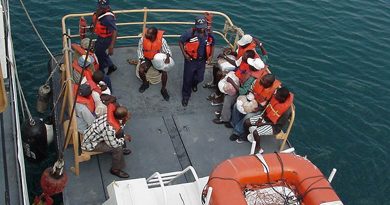Türkiye restricts export of 54 products to Israel until Gaza Ceasefire
Sophia Alicea
Staff Writer
Around 190 days into the war between Israel and Palestine, on April 9, the Turkish Minister of Trade said that they would impose limitations on exports to Israel until there is a ceasefire and more relief in the Gaza Strip. The limited exports are restricted to 54 different categories of trade ranging from —iron and steel products to chemicals, insecticides, and even bricks, as reported by Al Jazeera. The New York Times reports that Türkiye’s exports to Israel were worth $5.4 billion in 2023, or 2.1 percent of its total exports.
Tensions with Israel arose as a result of Türkiye‘s position in Gaza, mainly when the crisis was at its height, being heavily involved in the Gaza Strip, especially concerning the Israeli-Palestinian conflict. It has continuously backed Palestinian rights advocacy by denouncing Israeli policies and supporting the Palestinian cause. Türkiye has supported Palestine politically, diplomatically, and with humanitarian help at international forums such as the United Nations.
Türkiye has invested financially in infrastructural projects in Gaza, intending to better the living conditions of Palestinians. In a political move reported by Reuters, Turkish President Tayyip Erdogan publicly condemned Israel on November 15, calling it a “terror state” that was breaking international law and waging war in Gaza. This statement intensified Erdogan’s condemnation of Israeli officials and those who support them in the West. Erdogan later went on to call for Israeli leaders to be tried and charged for war crimes at the highest of courts at the International Court of Justice in the Hague.
According to Palestinian health experts says The Washington Post, Israel has murdered over 33,000 people in its six-month war on Gaza. Numerous nations have expressed anger over the number of casualties and the humanitarian disaster brought on by Israeli attacks and siege.
Humanitarian aid is desperately needed in Gaza because of the region’s persistent fighting, poor infrastructure, and economic problems. Türkiye‘s decision to request assistance airdrop into Gaza was motivated by its history of supporting Palestinian causes and its dedication to delivering humanitarian relief during times of need. Delivering food, medical supplies, and other requirements to communities experiencing severe humanitarian conditions can be accomplished quickly and efficiently through airdropping aid, particularly in conflict zones where conventional supply lines may be insufficient or disrupted. Israel’s alleged denial of Türkiye‘s request to provide such aid has exacerbated worsening relations between the two nations.
Technology, defense, agriculture, and tourism industries have always driven international commerce. Such trade relations have always been important to their economic exchanges. Over the years, Israel’s economy has grown significantly due to these partnerships. As The Times of Israel reports, the Israel Builders Association estimates that the country imports roughly one-third of its cement requirements and over 70 percent of its iron construction materials from Türkiye. Furthermore, Israel’s offshore natural gas deposits have made it possible for the two countries to collaborate on energy projects, demonstrating the strategic significance of their trade relations.
These economic factors highlight the importance of commercial ties between Israel and Türkiye for regional stability, collaboration, and economic growth. ABC News suggests that economic diversification may be required due to the limitations as Israel looks for new markets to compensate for the Turkish market’s loss. This could require higher expenses and changes for enterprises. Furthermore, Israeli businesses may incur higher costs due to supply chain disruptions brought on by the enforced limitations, particularly if they depended on Turkish suppliers or distribution networks for the impacted goods. Finally, the diplomatic strain resulting from the limitations may have broader consequences for Türkiye-Israeli trade agreements and political ties, affecting collaboration in other domains.
Although Israeli officials have not provided a public statement confirming or denying Türkiye‘s request for airdropping aid, they have strongly condemned Turkish government officials criticizing their stance on the Israeli-Palestine war. According to CNN, Israeli Foreign Minister stated, “…once again, President Erdogan is sacrificing the economic interests of the Turkish people in order to support Hamas.” Furthermore, it is said that Israeli Minister Katz gave the foreign ministry instructions to compile an “extensive list” of Turkish goods that Israel might outlaw in retaliation. Additionally, Israel would demand that the U.S. and its allies “stop investments in Türkiye and prevent the import of products from Türkiye. “It will also request that the United States Congress “impose sanctions accordingly.”
The boiling tensions between the two states have brought significant attention to the U.S. With President Joe Biden having yet to make an official statement on Türkiye’s restrictions, the U.S.’ pending response is one to be watched with a close eye.
Image courtesy of Getty Images


